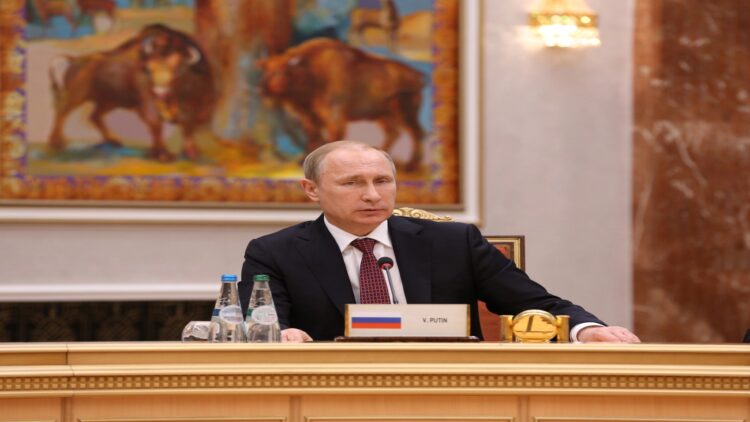The Russian economy is in a state of a downward spiral, with the European Union set to impose the 19th sanctions at a time when it had to admit that it is not Moscow that holds the real power to bend. Since Putin did not engage Trump until he imposed prohibitive tariffs on India to purchase its oil, there is an apprehension that Russia has already started to feel the pinch of Western aggressions, and also war expenses.
EU draws up 19th round of sanctions, with little to apply
The European Union is coming up with new sanctions to dent the military economy of Russia, but is already aware of the fact that the United States has the maximum control in the field rather than the European Union. As RBC-Ukraine, citing Politico, reported, four European diplomats confirmed to Politico that there are no major new restrictions on energy resource sales that fund the war of aggression on Ukrainian territory that will be introduced in the latest round of sanctions.
The 19th wave of sanctions, which is set to be introduced next month, aims at the shadow fleet and the organizations that assist Russia in bypassing restrictions. Yet, analysts believe that there is not a huge list of actions that the bloc can take against Moscow, as it has already taken measures to cap the prices of oil, restrict the import of fuel, and blacklist companies related to the Nord Stream pipeline.
This is how US secondary sanctions could devastate Russia’s economy
Even collateral sanctions of companies or countries that conduct business with Moscow would be most agonizing to Moscow, but the real impact of such would be felt by the U.S Maria Shagina, an expert in sanctions at the International Institute of Strategic Studies, noted that Moscow’s economy may look superficially resilient, but it already starts buckling under the pressure of the West.
Putin only succeeded in in the engagement of Trump when economic pressure had intensified
Several commentators believe that it was only when Washington imposed high tariffs on India on its imports of Russian economic lifeblood-its oil-that Russian president Putin resorted to working directly with Donald Trump. The next point in the drama, Politico writes, would be to ratchet up more near-equivalent sanctions to throttle Russia’s all-important trade with China.
This is the way in which strains are visible in front of Russia in the economy
Low oil prices, the lack of development of the military-industrial complex, the threat of the banking crisis, and constantly increasing spending on military affairs put the Russian economy on the path of recession. Onerous secondary sanctions, such as those that might be implemented by the United States against foreign firms doing business with Russians, would have a devastating knock-on effect on the Russian economy.
Ukraine leads a direct attack on GP on the Russian energy sector
As the pressure mounts diplomatically, Ukraine is making concrete moves to drain Moscow of its war-financing capabilities by attacking its refineries throughout Russia and putting its main source of state revenues into crisis. On the weekend, drones struck a pumping station along the Druzhba pipeline that carries Russian oil to Hungary and Slovakia, which are allies of the Kremlin; the attacks have halted oil flows.
Having recognized its comparatively insignificant sanctioning power and with the U.S. capable of applying only the harshest economic measures against Moscow, the Russian leadership has progressively fewer choices available to it. Once Trump threatens tougher action, Ukraine repeatedly bombing long-range energy targets, and with the underlying prospect of dual economic implosion, the Russian economy also looks increasingly fragile and unsustainable, possibly bringing the Kremlin to the negotiating table on real terms.


